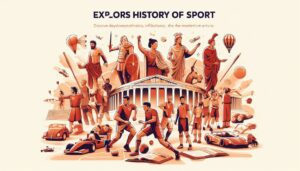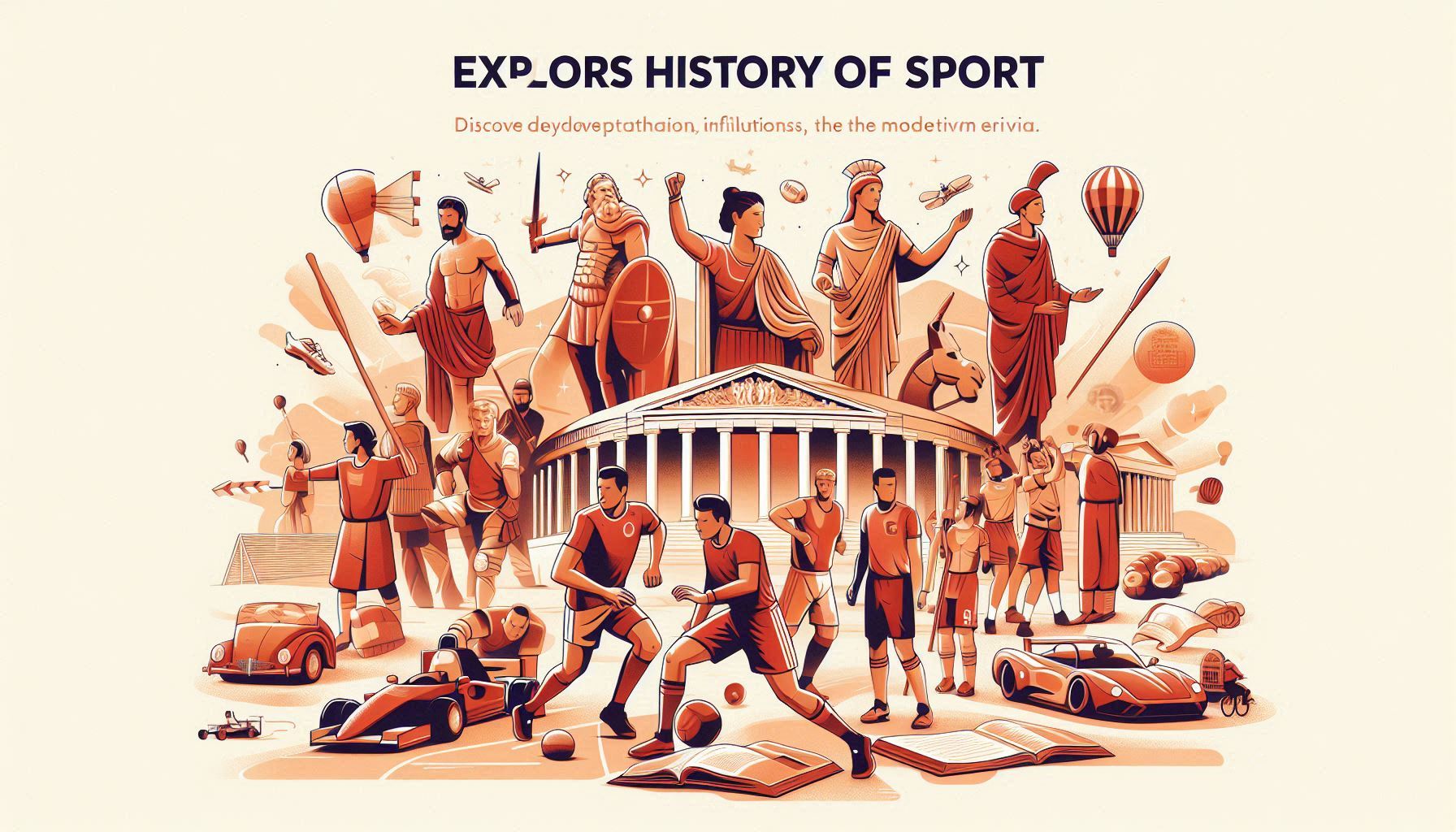
The History of Sport
The history of sport is a rich and diverse tapestry that spans thousands of years. It encompasses a wide variety of activities and cultures. Below is an overview of key periods and developments in the history of sport, highlighting the evolution of competitive activities from ancient times to the present day.
Ancient Times
Ancient Egypt and Mesopotamia
In ancient Egypt, sports played a significant role in society. Egyptians engaged in wrestling, swimming, and archery. These activities were often depicted in art and were integral to military training. In Mesopotamia, elite individuals enjoyed games like polo and hunting. Board games, such as the Royal Game of Ur, were also popular.
Ancient Greece
The ancient Greeks made a lasting impact on sports with the Olympic Games. Held in Olympia from 776 BC to 393 AD, this renowned event featured competitions like running, wrestling, boxing, chariot racing, and the pentathlon. Additionally, other major sporting events, including the Pythian, Isthmian, and Nemean Games, took place across different regions of Greece.
Ancient Rome
In ancient Rome, gladiatorial contests captivated audiences and were a significant form of entertainment. Chariot racing at the Circus Maximus drew large crowds. Romans also participated in various athletic events, such as wrestling, boxing, and running.
Middle Ages
During the Middle Ages in Europe, knights participated in tournaments and jousting. These events were popular among the nobility and often formed part of larger festivals. Early forms of football also emerged in various regions, typically characterized by few rules and sometimes leading to violent confrontations.
Renaissance and Early Modern Period
The Renaissance brought about fairs and festivals that frequently included sporting events. Activities like archery, wrestling, and horse racing were common. In England, the modern forms of soccer (football) and rugby began to take shape during the 19th century.
19th Century
The Industrial Revolution marked a turning point for organized sports. Clubs and leagues formed, and rules became standardized. Cricket gained popularity in England, while baseball emerged as a beloved pastime in the United States.
20th Century
The globalization of sport transformed the landscape significantly. The modern Olympic Games, revived in 1896, evolved into a global event showcasing athletes from around the world. International competitions, such as the FIFA World Cup (1930) and Rugby World Cup (1987), gained prominence. Professional sports leagues, including the NFL, NBA, and MLB in the United States, became major cultural and economic forces.
21st Century
In the 21st century, technological advancements revolutionized fan engagement with sports. The rise of television and the internet made sports more accessible than ever. Live streaming, social media, and digital platforms enhanced fan experiences. Additionally, the emergence of esports added a new dimension to competitive activities, with professional gamers competing for significant prize money.
Conclusion
Ultimately, the history of sport is a story of human endeavor, cultural exchange, and technological innovation. From ancient civilizations to the digital age, sports have evolved to reflect the values and interests of different societies. Today, sports continue to play a crucial role in global culture, fostering community, promoting health, and providing entertainment on a massive scale.
